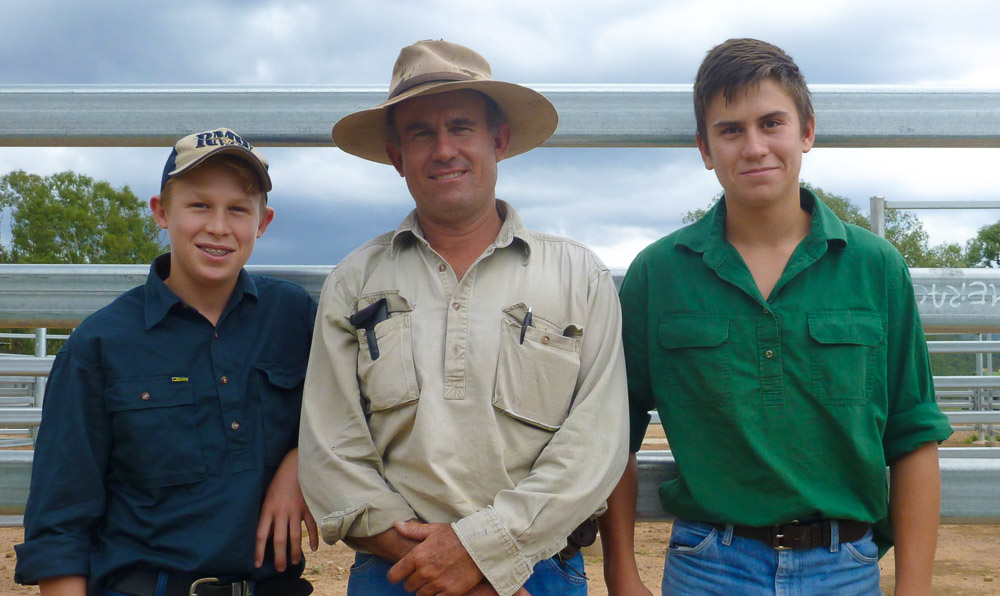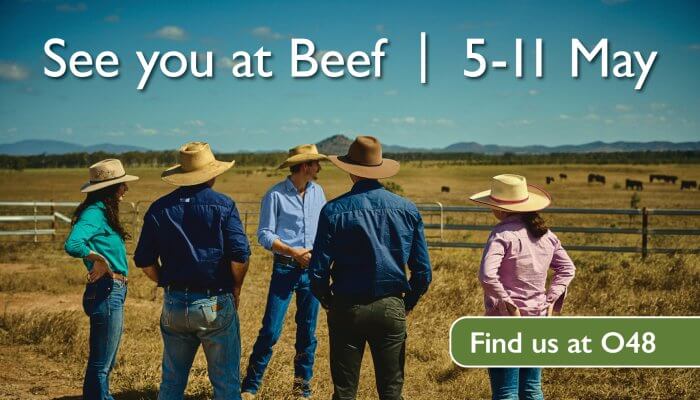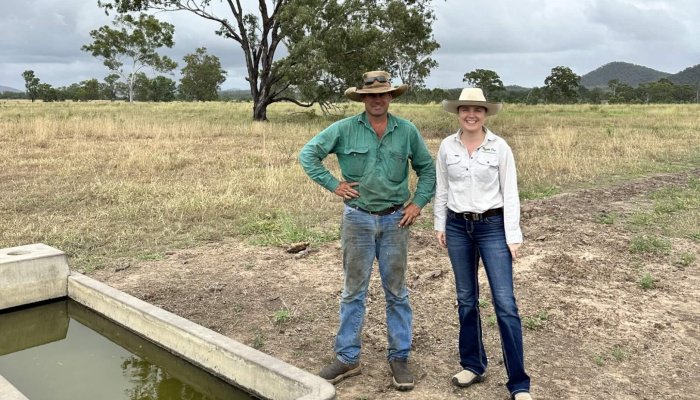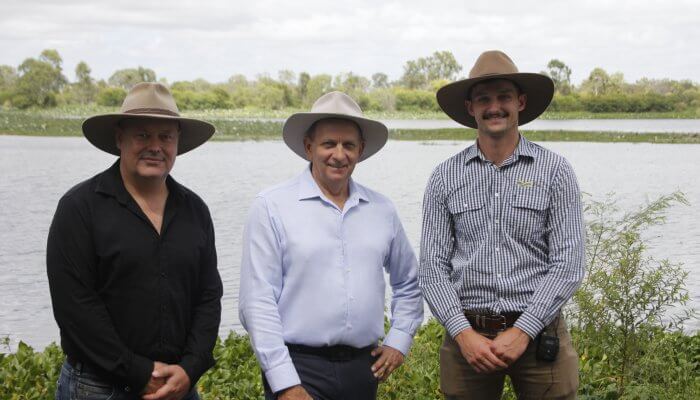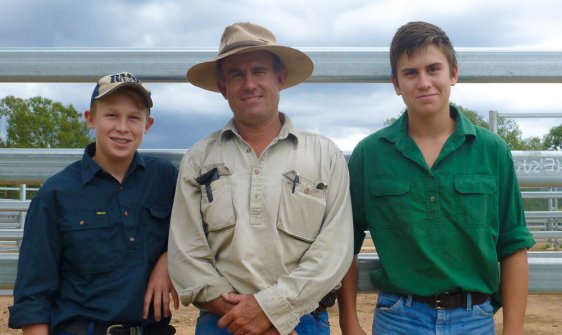
Changing faces of grazing have education at heart
Posted on January 22nd, 2015
In late December, a group of neighbouring graziers in the Carnarvon Ranges near Rolleston got together, not to celebrate early Christmas or the welcome December rain, but to take part in a Grazing Best Management Practice session.
The lounge room was the boardroom and the verandah the meeting room as the group gathered to hear presentations and undertake modules as part of the voluntary program, a joint initiative of AgForce, the Fitzroy Basin Association Inc. (FBA) and the Queensland Department of Agriculture, Fisheries and Forestry.
Hosts for the day were Gray and Liz O’Neill, second-generation graziers who with Gray’s father John operate the family’s 15,000 hectare property ‘Nyanda’, acquired in a ballot in 1964.
Fast forward fifty plus years and John’s grandson David is getting a head start, aged 14 and home from boarding school at St Brendan’s in Yeppoon, he is swapping holidays for theory and taking part – alongside his father and grandfather – in the Grazing BMP modules to begin to understand the practice of grazing in Central Queensland.
“Back then you ran some breeders, sold steers and figured things out as you went along,” said Mr O’Neill.
Today the Grazing BMP modules are giving graziers the theory behind the practice and working to move the industry to best-practice standards.
A program which helps graziers identify improved practices to assist them with long term profitability and sustainability it incorporates five modules – Animal Health and Welfare, Animal Production, Grazing Land Management, People and Business and Soil Health.
“I think Grazing BMP is very useful, giving you more of an understanding about those subjects and understanding why things are done the way they are,” Mr O’Neill said.
Also home from boarding school in Brisbane for the holidays were Ben and Michael Fletcher from neighbouring ‘Serecold’, too young to legally drive, but old enough to begin to learn the family business.
According to their father Jack, he believes at least one of his four sons, now aged 15, 14, 12 and 10 will return to their property to live and work after school, although with a strong education behind them their choice to return to the land will be theirs.
“Information has certainly been more easily attainable for my generation compared to the last generation,” Mr Fletcher said.
“Any workshops you do are certainly beneficial, and some I believe should be mandatory,” he said.
While Jack learnt a lot from the Grazing Land Management module covering topics such as resting pastures, matching stocking rate to carrying capacity, property mapping and forage crops, it was the discussion generated on these topics with his boys that was a highlight of the day.
“Grazing is a great way of life for a family but it’s not as lucrative as it used to be and you have to strive for efficiency in your business,” Mr Fletcher said.
“There is certainly a positive outlook in our industry at the moment with new trade agreements achieved by government and new markets for our beef opening up thanks to our industry representatives,” he said.
According to FBA Grazing BMP Project Manager Peter Long they welcomed the involvement of students in the Grazing BMP Program.
“We know the industry is made up of countless multi-generational family operations, so as we strive towards an industry of best-practice graziers in Queensland, if we can educate the younger generation coming through then this can only be a good thing,” Mr Long said.
For more information about Grazing BMP programs in your area visit FBA’s page on Grazing Best Management Practice or our Event Calendar.





